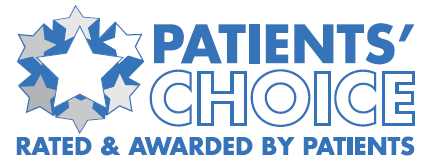Hemorrhoids in Pregnancy
Hemorrhoids are very common complaints during pregnancy. It afflicts 20 to 50 percent of all pregnant women in Minnesota. The hemorrhoids are actually varicose veins in the anorectal area, and although it is usually not dangerous, it can be very annoying. Four cardinal symptoms of hemorrhoids are itching, pain, bleeding and bulging out.
Some women get them in the first pregnant, others get recurrent hemorrhoids. Hemorrhoids usually get worse in the third trimester, right after labor pushing or if you develop constipation. The good news is that hemorrhoids will begin to improve soon after giving birth.
Why does pregnancy make women more prone to hemorrhoids? There are several reasons on it. First, hemorrhoids are a type of venous disease similar to varicose veins. Second, the enlarging uterus plus increased blood flow put pressure on the pelvic veins and other large veins that increases the pressure on the veins and causes them to become more dilated. Third, constipation is another common problem during pregnancy, which can also aggravate hemorrhoids due to the straining. Fourth, an increase in progesterone hormone during pregnancy causes the walls of hemorrhoidal veins to relax, allowing them to swell more easily. Moreover, progesterone slows down women’s digestive tract and contributes to constipation.
For the complete information on hemorrhoids, please review the website:
How to Manage the Hemorrhoids During Pregnancy
Although the women are prone to develop hemorrhoids when pregnant, they’re not inevitable. There are several ways to avoid or improve hemorrhoids.
Soak in warm water in the tub or sitz bath 2-3 times a day.
Try witch hazel or ice packs to soothe the sting of hemorrhoids; a warm bath might reduce discomfort, too. If you’re really uncomfortable when sitting, use a doughnut-shaped pillow to make sitting on your bum a little less painful.
Apply ice packs or cold compresses to your anus several times a day to help relieve swelling.
Keep your anal area clean. Pre-moistened wipes may be more comfortable than dry toilet paper. Choose brands that don’t contain perfumes or alcohol — or use medicated wipes made specifically for people who have hemorrhoids.
Try an over-the-counter hemorrhoid remedy. You may use Preparation cream for a few days or ask your health care provider to recommend a hemorrhoid cream that’s safe to use during pregnancy. Remember, hemorrhoid creams don’t cure the underlying condition — they simply soothe the pain of existing hemorrhoids. You should not use it continuously for a long term.
Avoid constipation: Eat a high-fiber diet, drink plenty of water, and get regular exercise daily. When you’re constipated, you may take a fiber supplement or stool softener, drink 6-8 glasses of water. If your constipation doesn’t resolve, ask your practitioner about it. You may program your bowel movement, if you are morning person or evening person, you may train yourself to have the bowel movement regularly every morning before shower. Don’t wait when you have the urge to have a bowel movement, try not to strain when you’re moving your bowels, and don’t linger on the toilet, because it puts pressure on the area.
Perform kegel exercises daily. Although no study shows Kegels decreases the chance of hemorrhoids, it increases the circulation which may help to avoid hemorrhoids. It also strengthens the muscles around the anus, the vagina and urethra, which can help your body recover after you give birth.
Avoid sitting or standing for long stretches of time. Try lying on your side or standing up. If you must sit, get up and move around for a few minutes every hour or so. At home, lie on your left side when sleeping, reading, or watching TV to take the pressure off your rectal veins and help increase blood return from the lower half of your body.
If these suggestions don’t help or your hemorrhoids get worse, consult with the hemorrhoid care expert Dr. Shu in Edina, MN. He provides one stop hemorrhoid care with multiple treatment modalities.
For the complete information on hemorrhoids, please review the website:



